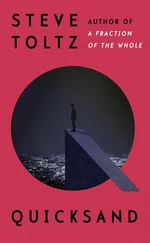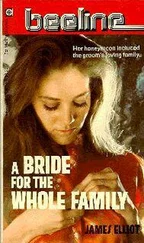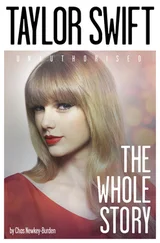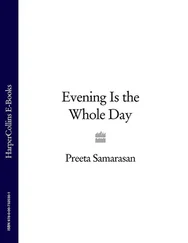“You need help moving?”
“No, it’s OK.”
It was as if we had been playing a game all our lives and the game was ending, and we were going to take off our masks and our uniforms and shake hands and say, “Great game.”
But we didn’t.
Suddenly all my bitterness and hatred for him evaporated. I felt enormously sorry for him. I saw him as a spider who woke up thinking he was a fly and didn’t understand he was caught in his own web.
“Well, I’d better get going,” I said.
“Do you have a phone number?”
“Not yet. I’ll call you when I get the phone on.”
“Right. Well, bye.”
“See ya.”
As I turned and walked out, Dad let out a little rumbling grunt, like the sound of troubled bowels.
A uthor’s note: My original version of this chapter went hurtling into the shredder as soon as I discovered among my father’s papers the first five chapters of his unfinished autobiography. I’d just finished pouring out my entire story and I was frankly annoyed- mostly because his account covered this period better than my version of the events. Not only was his version more concise, because it did not contain my long digression on the recent glut of calendars featuring sexy priests, but I was irritated that Dad’s version of events contradicted much of my own, and even some of the previous chapter (four), which I’d really labored over. Nevertheless, under the influence of my two guiding stars, impatience and laziness, I’ve not amended any part of Chapter Four, and decided to print Dad’s unfinished autobiography here, slightly edited, as Chapter Five. My version of Chapter Five is still around somewhere- I didn’t really throw it in the shredder. Hopefully, in years to come it will be of curiosity value- to the highest bidder.
My Life by Martin Dean
A Loner’s Story by Martin Dean
A Loser’s Story by Martin Dean
Born to Be Snide by Martin Dean
Untitled Autobiography of Martin Dean by Martin Dean
Why write this autobiography? Because it’s the privilege of my class. Now before you start screaming, I’m not talking about working, middle-, or upper-middle class. I’m talking about the real class struggle: the celebrity vs. the ordinary schmo. Like it or not, I am a celebrity, and that means that you are interested in how many sheets of toilet paper I use to wipe my arse, whereas I have no interest in whether you wipe your arse at all or just leave it as is. You know how the relationship works. Let’s not pretend it’s any different.
All celebrities who write their biographies play the same trick on readers: they tell you some terrible degrading truth about themselves, putting you in a position where you think they must be honest chaps, then they turn on the lies. I won’t do that. I’ll tell you only the truth, even if I come off smelling like lawn fertilizer. And, just so you know, I understand that an autobiography should cover the early years of my life (e.g., Martin Dean was born on such-and-such a date, went to such-and-such a school, accidentally got such-and-such a woman pregnant, and so on), but I won’t be doing that either. My life up until one year ago is none of your business. Instead, I’ll start from where my life was at the moment when the great change occurred.
***
I was forty-one at the time, unemployed and living off child support even though I was the parent. Admittedly, this is not the spirit that has made our country great, but it is the spirit that has made it so you can go to the beach on a weekday and see it full of people. Once a week I would make myself busy at the dole office showing them a list of jobs I hadn’t gone for, and this was taking increasing amounts of energy and imagination. I tell you, the jobs out there are getting harder and harder not to get. Some bosses will hire anyone!
On top of this, I was going through the humiliating process of aging. Everywhere I went I met my memories, and I had that old sinking feeling of betrayal, of having betrayed my destiny. I wasted many months thinking about my death, until it began to feel like the death of a great-uncle I didn’t know I had. It was at this time I became addicted to talk-back radio, listening to mostly elderly people who stepped out of their houses one day and just didn’t recognize anything, and the more I listened to their interminable griping, the more I realized they were, in their way, doing the same thing I was: protesting the present as if it were a future one still has the option of voting against.
There were no two ways about it: I was in a crisis. But recent shifts in behavioral patterns of different age groups had made it difficult for me to determine what type of crisis I was in. How could it be a midlife crisis when the forties were the new twenties, the fifties were the new thirties, and the sixties were the new forties? Where the fuck was I? I had to read the lifestyle supplement in the Sunday papers to make sure I wasn’t actually going through puberty.
If only that was the worst of it!
I suddenly was mortified by how ridiculous I was to live in a labyrinth of my own design. I was scared I would one day be remembered for it, and equally terrified I would not be remembered at all, unlike my fucking brother, who was still being talked about, still the focus of my countrymen’s affections, still popping up in semischolarly books about the characters that typify Australia, in paintings, novels, comic books, documentaries, telemovies, and the occasional student thesis. In fact, my brother had become an industry. I went to the library and found no fewer than seventeen books that chronicled (incorrectly) the Terry Dean story, as well as countless references to him in books on Australian sport, Australian crime, and those that tackled the tedious, narcissistic topic of pinning down our cultural identity. And the pinnacle of my creative life was to build a stupid labyrinth!
I wondered why nobody had stopped me. I wondered why my friend Eddie loaned me the money so willingly, knowing full well that a man who lives in a labyrinth of his own design must necessarily go mad. On top of which, I had not paid him back, and since then he had continued to support me. In fact, when I thought about it, he had mercilessly loaned me money ever since I’d met him in Paris, and worse than that, he had brutally, without conscience, never asked for it back. Never! I became convinced that he had an ulterior motive. I worked myself up into a paranoid frenzy about it, and I realized that I hated my closest friend. When I thought about his gestures and expressions in my company, it occurred to me that he hated me too, and I thought friends must hate each other the world over and I shouldn’t be bothered by it, but I was bothered by this sudden conviction that Eddie actually loathed me. I was bothered by the question of why the hell I’d never noticed it before.
To top this off, I found to my shame that I had all but lost interest in my son as a person. I don’t know why, exactly. Maybe the novelty of seeing what my eyes and nose looked like on someone else’s face had finally worn off. Or maybe because I felt there was something sleazy, gutless, restless, and horny about my son, something that I recognized in myself. Or maybe because despite a lifetime of my trying to wield my personality as an influence on him, he’d managed to turn out utterly different from me. He somehow became dreamy and positive and took sunsets dead seriously, as though the outcome of the event might not always be that the sun sets but that it might freeze just above the horizon and start going up again. He seemed to be amused by walking in the outdoors, listening to the earth, and fondling plants. Imagine! A son of mine! Isn’t that a reason to turn away? Maybe, but to be honest, the reason I lost interest in him is that he’d lost interest in me.
Читать дальше












